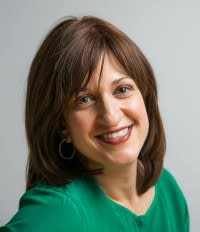This is a response to an article that ran on JTA, How I Became a Reform Jew
My parents raised us in an observant Orthodox household. Our lives were filled with beautiful ritual and we celebrated the wonder of a familial spiritual connection.
If those words sound familiar, they should. Neshama Carlebach wrote them.
In a recent article by Ms. Carlebach, daughter of the late, great Rabbi Shlomo Carlebach, she shared her recent experiences at the Union for Reform Judaism convention in San Diego. Her formative moments that weekend gave her a sense of coming home, finding a family with whom she fit in perfectly, and filling the religious voids that, she said, for her, Orthodoxy never could.

Like many others on Facebook and Twitter, I read the article in earnest. Her name and pedigree alone piqued my interest, and I imagine it is also what drew most people to read the piece as well. While on-line reactions varied, I wondered if, sans the name recognition, anyone would read an essay I could write about why I love Orthodox Judaism.
Like Ms. Carlebach, I have a very clear understanding of what it means to be a Jew in the modern world. I have been blessed with many unusual opportunities — unusual for most women, not just those of the Orthodox persuasion. I proudly answer virtually any question I am asked, be it on national television about Orthodoxy and contraception, or at a business meeting about whether my head is shaved beneath my wig. If I am the first contact that someone has with an Orthodox Jew, it is my pleasure to represent.
As a young bride, I received numerous gifts at my bridal shower. Few stand out in my mind today, with two exceptions: the gifts from my mother and my mother-in-law. My mother bought my baking set, including Pyrex dishes of various sizes and shapes. Though it may seem insignificant to most and strange to many, I could not have been happier.
For years I had watched my mother, my father, my grandmother and my aunts bake in dishes like these. Kugels, coffee cakes, chicken and the like were always made in a Pyrex. To me, they are about Shabbos and family. My own set of this bake ware meant that I was being both empowered and burdened with continuing the traditions of my upbringing, a burden I happily accepted. It is an honor to keep these traditions alive and to raise my family in this way. And the pride I take in knowing that these are the same values, traditions and laws which have kept Klal Yisrael — all of the Jewish community — going for thousands of years, knows no bounds.
The gift I received from my mother in law was my candlesticks, the ones I use to usher in each Shabbat and Yom Tov. With my daughters beside me, I light the candles and recite the blessings, a tradition that dates back to our matriarch Sarah. Sitting amid pictures of my children at various stages of life, and handmade school projects from years ago, the candlesticks are a beautiful reminder of our collective past, present and future. They radiate a light that extends far beyond my dining room and represents much more than two simple flames. I am complete.
I have never questioned my role as a woman in Judaism. In fact, I have embraced it, accepting that my role is different than my husband’s, my brother’s or my father’s. I have my responsibilities and they have theirs — and that’s okay. In fact, it is more than okay: it is the way it should be. Guided by brilliant rabbis and leaders blessed with an infectious love for Judaism, this commitment is exactly what strengthens the links in our chain, a chain that predates us all — modern movements included.
Torah is alive and well in my home. Like Ms. Carlebach, I have also not abandoned anything that is intrinsic to me. Quite the contrary: with every step I take in the modern world, my religious connection becomes stronger, grounding me to what is important and to what has kept us alive as a people. The irony is that everything Ms. Carlebach believes she has found only in Reform Judaism, she already had in Orthodoxy. I, too, am expanded, elevated and blessed. But for me, I am already home.
This is a response to an article that ran on JTA, How I Became a Reform Jew
The words of this author reflect his/her own opinions and do not necessarily represent the official position of the Orthodox Union.



